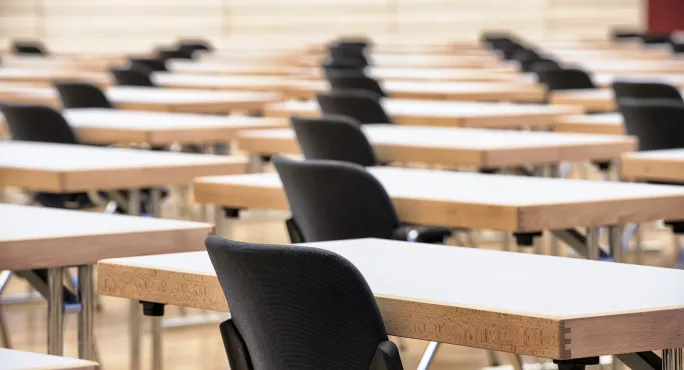The Department for Education has opened a consultation on its current plans for the 2022 GCSE and A-level exams, along with a consultation on vocational, technical and other general qualifications, including Btecs.
But what do the plans look like? Here’s our round-up of the key points you need to know about GCSEs and A levels in 2022.
GCSE and A-level exams in 2022: What will happen when?
Students will sit exams during an exam period beginning in the middle of the summer term, as they usually did before the pandemic. Unlike 2021, there will be no teacher-assessed grade (TAG) assessments, and no staggered exams.
The order of exams may be slightly different in 2022 than in previous years, as the Joint Council for Qualifications (JCQ) will be consulting schools and colleges later this year to decide how to sequence the exams to ensure that papers in the same subject are appropriately spaced out. This is to ensure that students have the best possible opportunity to take at least one paper in a subject, in the event that they are ill or self-isolating during the exam period.
What will these grades be comparable to?
Unlike with the 2021 TAGs, there has been no mention in the consultation as to what grades these exams will be “pegged to”. Grade inflation was at a record high in 2020, and many believe it is set to rise again in 2021. Whether we’ll see grades fall to a point where they can be comfortably compared with grades from 2019 - or something in between - is still unknown.
What will the assessments look like?
The proposals come in addition to the adjustments that have already been announced for practical subjects, and the changes to the fieldwork requirements for geography, and the recording of students in MFL and English language.
History, ancient history, geography and English literature are proposed to include some choice of topics in addition to “core units” of study. This is likely to look similar to the proposals that were in place for 2021 before the decision was taken to move to TAGs, with students all answering questions on their “core units” and then having a choice of topics for the remaining units.
Science practicals had adjustments made for them for the 2021 exam series, whereby teachers were allowed to deliver practical science work by demonstration rather than students completing the practical work themselves. The proposals put forward the suggestion to continue these adjustments for 2022.
For art and design students, the proposal is that students should be assessed only on their portfolio of evidence and not on a timed task completed in a classroom.
What will the consultation ask teachers?
The consultation will invite views on whether these adjustments go far enough, and whether there should be additional adjustments made.
Specifically, the consultation seeks thoughts on whether advance information on the content of exam questions should be provided for the majority of GCSE and A-level subjects.
There are also questions asking for opinions on students bringing in additional materials to the exams, particularly in mathematics. The consultation asks for opinions on which additional materials teachers, students and parents feel would be appropriate to be brought into the exam.
What about Covid-19 contingency plans?
Looking at the possibility of further lockdowns resulting in exams being cancelled again in 2022, the consultation directs teachers, parents and students to the government’s survey seeking opinions to help with its contingency planning. The survey asks how arrangements could be improved if TAGs form part of the 2022 back-up plan.





